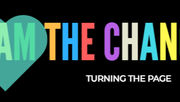May 11, 2025 - MOTHERS DAY
- Sheryl and Dan Malin

- May 11, 2025
- 4 min read
Hello Followers,
Happy Sunday!

And here in the United States, Happy Mother’s Day.
Today is a day to celebrate the wonderful women who have brought us up, shaped us, and given us so much time, love, and care.
Mothers are the root, our foundation.
She plants the seed that base our life on, and that is the belief that the ability to achieve starts in your mind.
Mother's love is the first light that guides us, the first comfort we ever know, and the lasting strength we carry through every stage of life.
This special Mother's Day tribute brings you three original songs, celebrating the beauty, warmth, and unwavering love of mothers everywhere.
Each song is a heartfelt message - timeless - remembering the small moments that shaped us, honoring the silent sacrifices, and thanking the incredible women who helped us dream, grow, and believe.
Songs: Everything I am in your arms to all mothers.
MUSIC WITH WORDS ARE VERY POWERFUL
The true beauty of music is that it connects people.
It carries a message, and we are the messengers.
This is for all mothers!
For stress relief, music can provide a calming effect, helping individuals relax and find a sense of peace.
Whether it is through listening to soothing melodies or engaging in musical activities, music can be a valuable tool for managing stress.
The combination of emotional and physical benefits of music ultimately makes music such a powerful healing tool.
The ability of music to engage in multiple senses and bring a range of emotions makes it unique and healing.

RECAPPING THE WEEK
Music gives a soul to the universe,
wings to the mind,
flight to the imagination and life to everything.
Music is the tool to express life and all that makes a difference.
Music is the soundtrack of your life.
Music is your own experience, your thoughts, your wisdom.
If you do not live it, it will not come out.
Music in the soul can be heard by the universe.
Music gives a soul to the universe,
wings to the mind,
flight to the imagination,
and life to everything.
Music is very spiritual; it has the power to bring people together.

Study Says Napping During the Day Slows Brain Aging by Up To 6.5 Years
If you have ever felt guilty after drifting off for a midday snooze, you are not alone.
Napping is a daily ritual for many, yet its impact on brain health has long been a mystery.
Recent research, however, is starting to shed light on whether those short spells of daytime rest might offer a protective effect for our brains as we age.
A team of researchers from University College of London, the University of the Republic in Uruguay, and the Broad Institute in Massachusetts set out to explore whether there is more to napping than just a quick energy boost.
Their investigation focused on the possible link between a genetic tendency to nap and the size of the brain-a factor widely regarded as a marker for neurological health.
The study drew data from a vast pool of 378,932 participants enrolled in the UK Biobank, with ages ranging from 40 to 69 and an average participant age of 55.
The researchers zeroed in on ninety-two genetic markers previously associated with the habit of napping.
They then compared these genetic blueprints with measurements of total brain volume, hippocampal volume, reaction time, and visual memory.
The team used a method called Mendelian randomization.
This approach leverages naturally genetic differences to determine if a specific trait-like napping-is influencing an outcome, in this case, brain size.
By focusing on genes set at birth, this method helps sidestep the usual confounding factors that might cloud observational studies, such as lifestyle or environmental influences.
In other words, it is a way to get closer to understanding whether napping itself might be a player in maintaining brain health, rather than just being along for the ride.
The analysis revealed a modest but noteworthy association: individuals with a genetic predisposition for napping tended to have larger total brain volumes.
To put it in perspective, the difference in brain size was estimated to be about 15.8 cubic centimeters-roughly the equivalent of two and a half to six and a half years’ worth of aging.
A shrinking brain is often seen as a sign of neurodegeneration, so maintaining a larger brain volume is considered a positive sign for long-term neurological well-being.
However, the study did not find any meaningful link between a genetic inclination to nap and other measures such as hippocampal volume, reaction time, or visual memory.
In other words, while the brains of habitual nappers might be a bit bigger, this did not translate into measurable improvements in cognitive performance-at least not in the areas tested.
Napping is woven into the fabric of daily life in many societies, from the Mediterranean siesta to the afternoon lull in East Asia.
Previous research has hinted at cognitive benefits from brief naps-think sharper thinking and increased alertness after a 30- to 90-minute rest.
But the waters get muddier when it comes to the long-term effects of napping on the brain.
Some studies have suggested that frequent nappers might be at higher risk for certain neurological conditions, while others have found the opposite.
The new research sought to clarify whether napping is simply associated with brain health or if it might play a role in preserving it.
This research marks an important step in understanding the relationship between napping and brain health.
Future studies will need to dig deeper into nap duration, timing, and quality, as well as explore how these factors interact with other aspects of sleep and lifestyle.
These POWERFUL Mother’s Love affirmations will speak nurturing words of unconditional love directly to your inner child, wrapping you in a blanket of safety and healing love.
Until Monday, when words leave off, music begins,
and Mothers can look through a child’s eyes and see tomorrow.

















































Comments